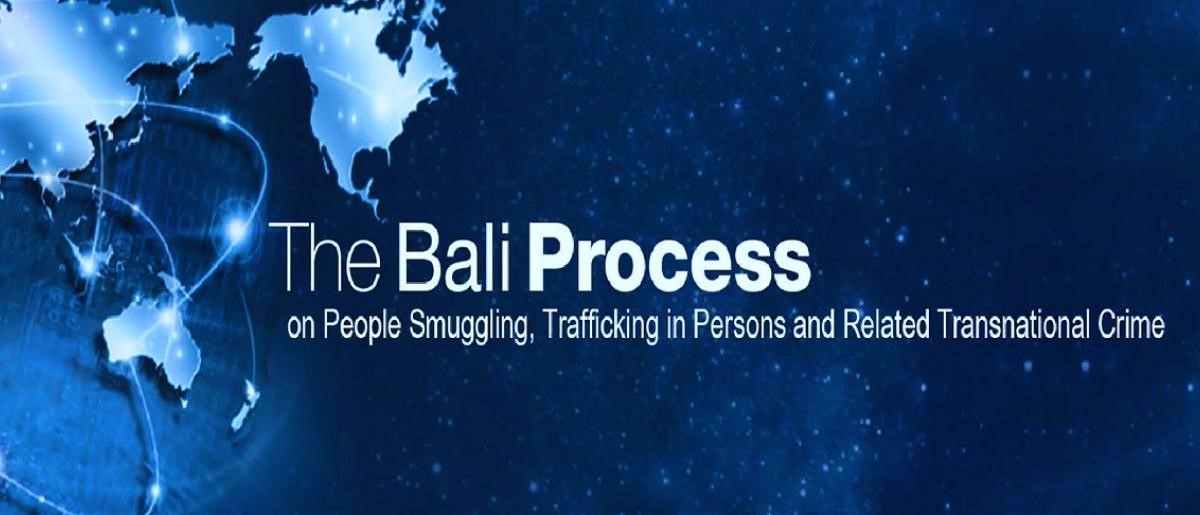The Bali process is a non-binding, multilateral and international forum established in 2002 bringing together government officials, experts, Ministers of Foreign Affairs from member states. The Process is focused on People Smuggling, Trafficking in Persons and related transnational Crime in the Asia-Pacific region. It is led by a steering group of four countries (Australia, Indonesia, New Zealand and Thailand) and is permanently co-chaired by Ambassador Lynn Bell (Australia’s Ambassador to Counter Modern Slavery, People Smuggling and Human Trafficking) and Ambassador Tri Thayat (Indonesian Director-General for Multilateral Cooperation). It is located at the Australian and Indonesian governments with a regional office in Bangkok, and brings together 45 Member States, 4 Member Organizations (IOM, UNHCR, UNODC, ILO), 18 Observer States, 9 Observer Organizations (e.g.: ADBM, ICMPD, IFRC).
They have a Ministerial Conference every two years to bring together the ministerial representations of the Bali Process’ members. In 2016 was created the Government and Business Forum, in order to maximize the Process impact and increase the pace of their progress. It is a platform for collaboration between the private sector and the Member States of the Bali Process to address forced labor and human trafficking challenges.
The Regional Support Office
The Bangkok Regional Support Office was established in 2012 to provide technical support to Members and strengthen cooperation. It brings practitioners across Member States together through a programme of training activities, events, workshops and roundtables. . Their trainings range from Technical Workshops to Thematic Dialogue on subjects related to the Process’ interests, and are designed to stay ahead of new and emerging issues and to work collaboratively to develop responses and solutions.
The Regional Support Office works with a range of delivery partners to deliver their Operational Capacity Building and Training, among which can be found the Australian Border Force and the Australian Federal Police, the Canada Border Services Agency, CIFAL, and the International organization for Migration for example.
Their key areas of training are the following:
- Countering People Smuggling
- Transnational Crime and Technology
- Irregular Migration and Regional Priorities
- Border and Migration Management
Recently
The most recent advancement is the 2023 Adelaide Strategy for Cooperation, which was agreed on in order to reinvigorate an agile, relevant and responsive Bali Process. They also highlighted and reaffirmed the future-focused approach of the Process.
This strategy is focused on eight areas:
- Law enforcement
- Stakeholder engagement
- Information sharing and public information campaigns
- Irregular Migration and Related Transnational Crime
- Border Management
- Victim Protection and Migration Management
- Returns and Reintegration
- Coordination and support


Comments are closed